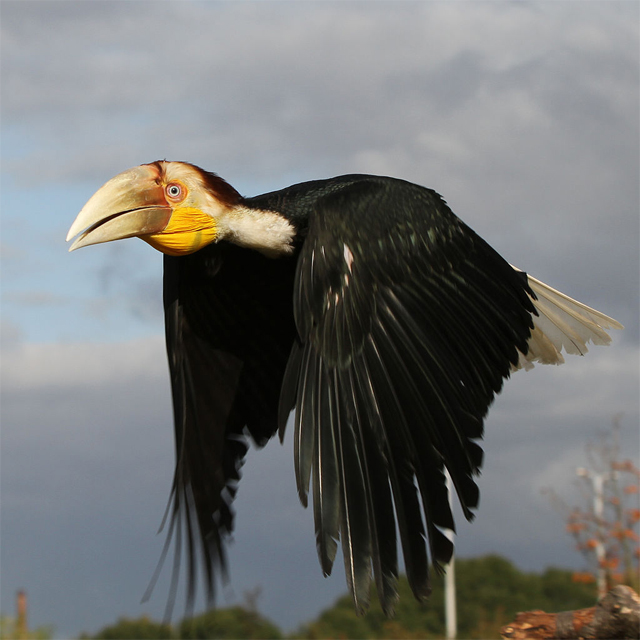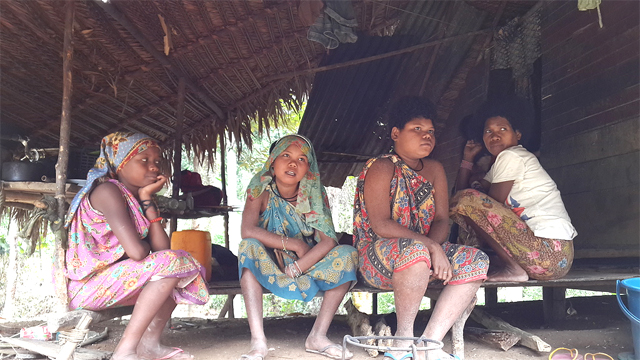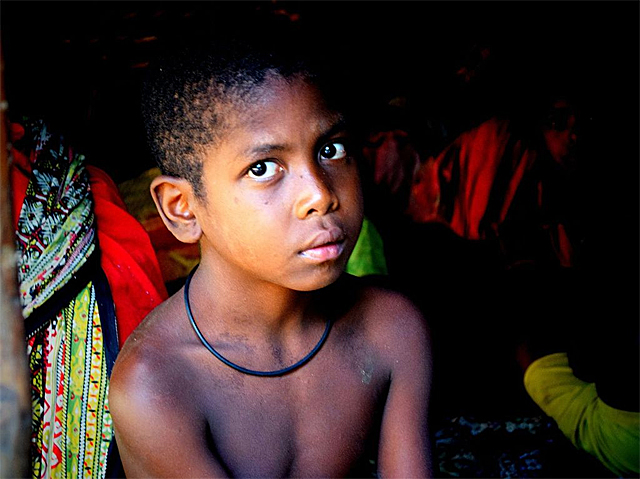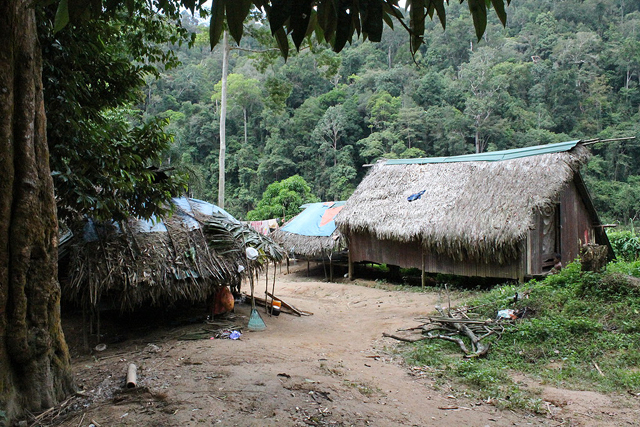A group of birders and photographers gathers around the young Batek widow hoping for a close-up view of the wreathed hornbill she’s raised. Doubtless attracted by news stories in August about the huge bird and its human protector, the visitors to Kampung Aur, located in Malaysia’s Taman Negara National Park, try to lure the bird down out of the trees but he ignores their calls. But then Umi, the Batek lady, calls and the bird, which she has named To’ek, flies down immediately to eat some rice out of her hand.

Rashvinjeet S. Bedi suggests in a Malaysian news source on November 15 that the woman’s caring relationship with the hornbill is symptomatic of the strong connections between the Batek and nature, particularly with the flora and fauna of Taman Negara.
He quotes a local tour guide named Abdul Jalil who has been conducting tours along the Tembeling River in Taman Negara for nearly 25 years and who knows the Batek very well. Jalil says that the Batek know the park area intimately. They assist the park by reporting illegal poaching activities to the Wildlife Department. Furthermore, he says they are becoming more involved with tourists—some work as tour guides, others work as boatmen.

Except for their village leaders, the reporter says that the Batek tend to be shy of visitors. There are about 2,000 Batek living in the park and its environs. He describes their homes as made of bamboo and palm leaves and quite adequate to protect the people from the heavy rainfall. He sees their homes as “just simple huts with pots and kettles.” They lack computers, televisions, and refrigerators, though a recent project installed solar panels and LED lamps in the homes.
According to a man named Manderu, the leader of the village, they supplement their diet of canned foods, rice, fruits and yams with wild meat from monkeys, squirrels, and birds that they hunt with their blowpipes. They also sell rattan, sandalwood and honey that they gather in the forest. Most of the adults are illiterate, according to the writer, but the community is trying to see that their children are getting a basic education in Kuala Tahan.

Kampung Aur has 12 Batek families who have been living there for 18 years, though Manderu says that they still consider themselves to be nomadic. They will typically move their community when food sources become scarce or when a death occurs. He tells the writer that at times they move deeper in the forest for a few weeks to gather herbs and then return to the village. Eight families from another Batek village recently moved into Kampung Aur because a panther had mauled one of their men while he was out in the forest.
Bedi asks Manderu if they would ever consider moving into town. He replies that it would be impossible: they belong in the forest. “This is our home and we have to take care of it. We need one another,” he said. He expresses sadness at the logging that is going on nearby. However, the journalist writes, the forests are a major draw for the international tourist trade, which may help to preserve them.

The author also talks with the Sena, the Batek leader at Kampung Dedari, a village which has become known recently for opening a basic tourist facility. Sena feels that the project of hosting visitors has been working well. It has gained the villagers some extra income; it has allowed tourists to see them demonstrate their traditional skills such as using their blowpipes and fire making. Beyond that, Sena believes that demonstrating their skills to the tourists gives the Batek a good reason to cherish their traditional customs.
Abdul Jalil says that the long-term goal of the bird group that is helping the Batek of Kampung Dedari develop and manage their tourism business is for the villagers to take charge themselves. Andrew Sebastian, founder of the Ecotourism & Conservation Society of Malaysia, admits that the facilities at the village for tourists are basic but the location and the experience the tourists will get are astounding. Other communities are interested in offering the experience as well.
Sebastian offers the thought that the Batek “have a special and unique role to play in Taman Negara. Let’s not forget that they were here way before the existence of the National Park.” He urges managers to integrate the Batek into the ecotourism planning for the park. Experiencing the Batek could become one of the strongest selling points for the park to international visitors.